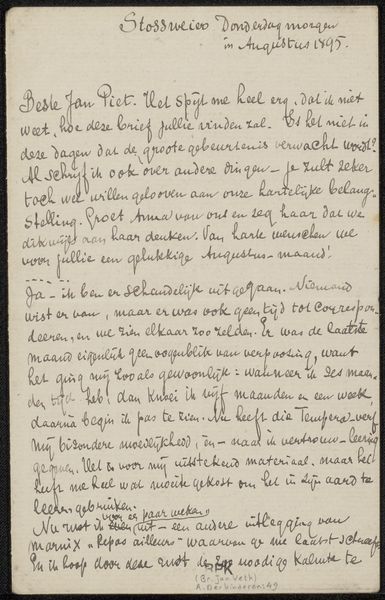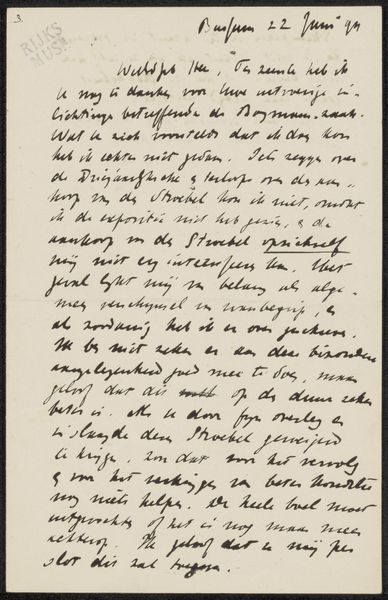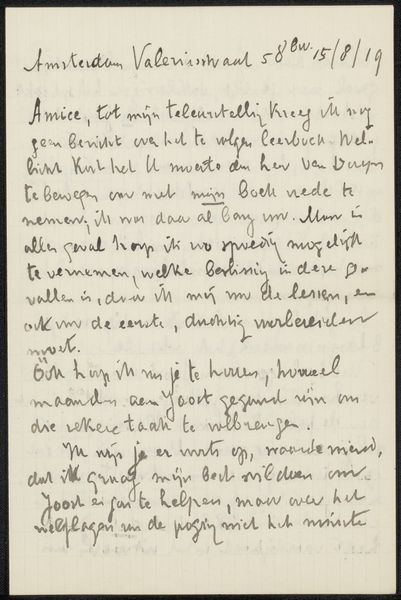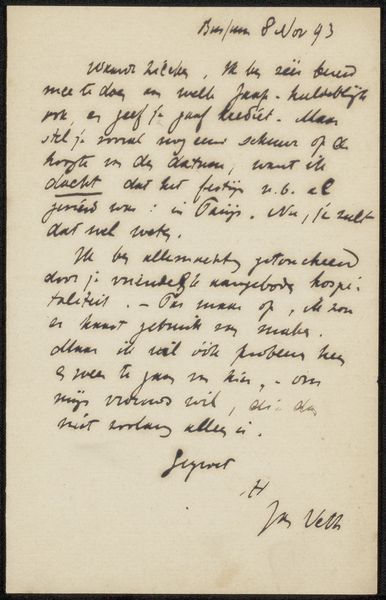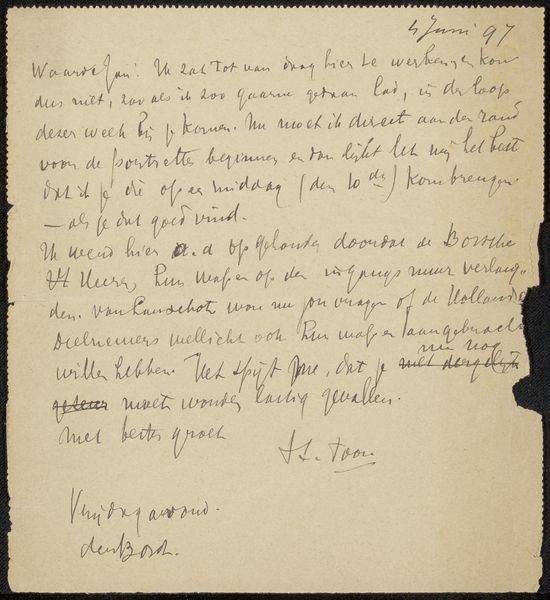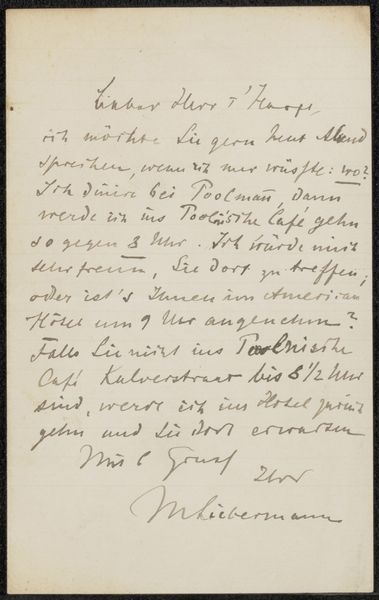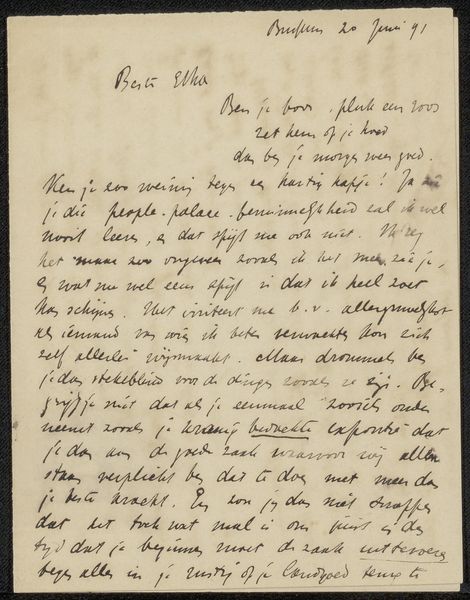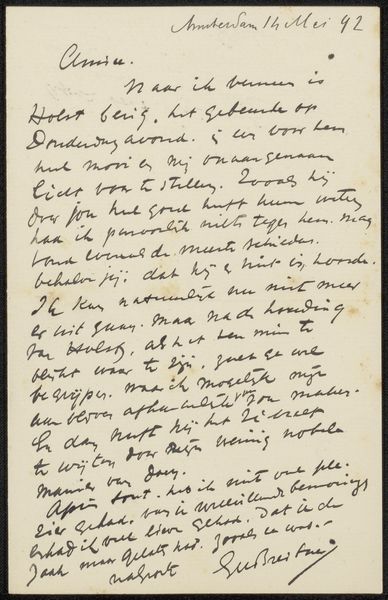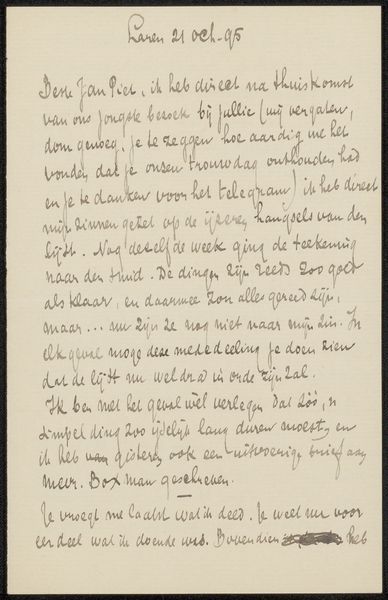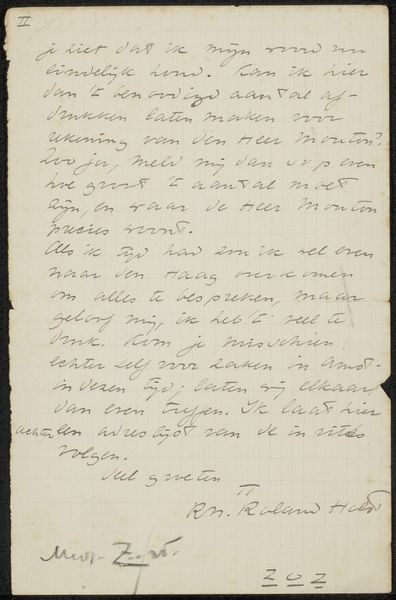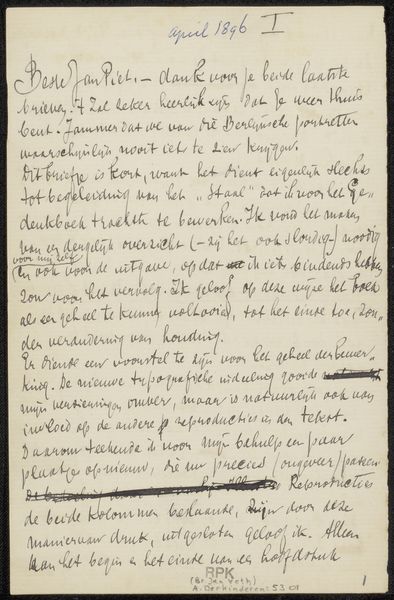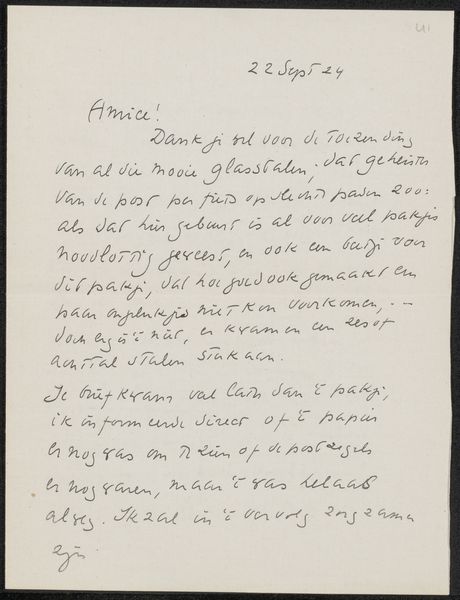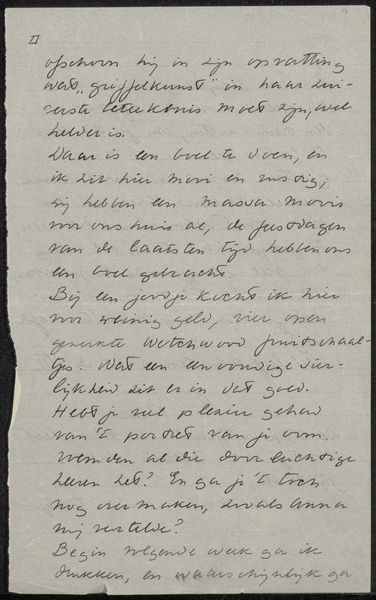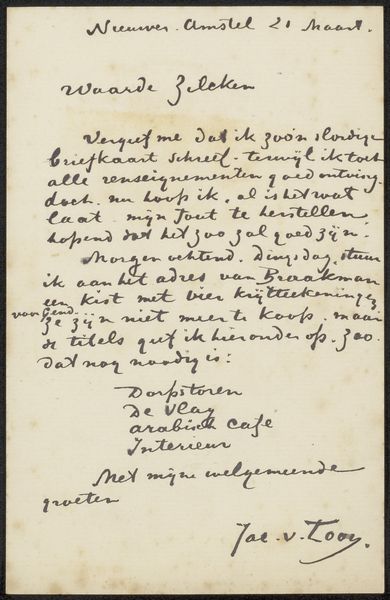
drawing, paper, ink, pen
#
drawing
#
hand-lettering
#
hand drawn type
#
hand lettering
#
paper
#
personal sketchbook
#
ink
#
hand-drawn typeface
#
pen-ink sketch
#
ink colored
#
pen work
#
sketchbook drawing
#
pen
#
sketchbook art
Copyright: Rijks Museum: Open Domain
Curator: Here, we have “Brief aan Etha Fles,” which roughly translates to "Letter to Etha Fles," an ink drawing made with pen on paper by Jan Veth between 1874 and 1925. Editor: It has a very intimate and personal feel. The handwriting gives it an almost feverish quality, as if it were jotted down in a hurry. There’s an urgency conveyed by the density of the text, like a private, quickly rendered thought. Curator: It’s part of a larger trend of artists using text within their works, reflecting the increasing literacy rates and the growing importance of written communication during the late 19th century. Artists like Veth were fascinated by the visual potential of script. Editor: But the handwriting itself adds another layer of meaning. Calligraphy in a personal letter can suggest class, education, intimacy, perhaps even the writer’s mood. Here the rushed feeling perhaps suggests a certain social tension between the writer and the receiver. It raises questions about how personal writing itself can reinforce or resist certain power dynamics. The letter's contents are, evidently, about mediating in a social context. Curator: It highlights how communication is not just about the literal message, but about the social and cultural context in which it exists. Veth also considered design and typography, so even a simple letter became a field to express oneself artistically. Editor: Right, the "un-gentlemanly" tone that the letter talks about denotes something else too; is this social relationship shaped through language a coded way to assert gender in this communication? What does that mean for art history when these sketches and letters inform how Veth expresses this gendered and perhaps queer identity in their sketchbooks? Curator: I see what you mean, by drawing our attention to seemingly ephemeral documents like personal letters, Veth allows us to reconsider and perhaps redefine established artistic and societal norms. Editor: Absolutely, it demonstrates that even private correspondences could reveal nuanced commentaries about identity and societal conventions. Curator: Studying how he crafted language as part of his visual language gives us a richer insight into not just his individual experience, but also that of the socio-political and cultural dimensions of his artistic period.
Comments
No comments
Be the first to comment and join the conversation on the ultimate creative platform.
